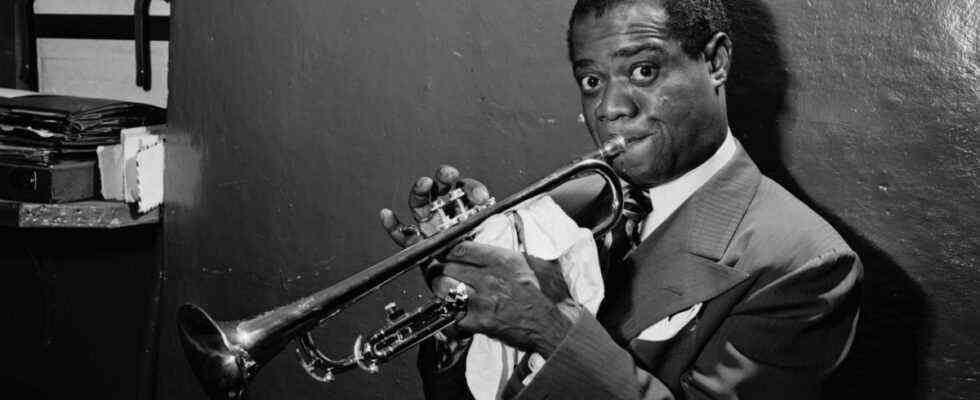There is hardly a swear word that is as bad as “Uncle Tom” for an African American. Louis Armstrong repeatedly insulted her as such a traitor to his own people and a spineless collaborator with the oppressive white society. The man, of all people, who had moved jazz from the niches of New Orleans to the center of American culture. Or just because of that. Because he always grinned so much, which many felt was a relic of the Minstrel culture. But also because his hits like “Hello Dolly” and “What a Wonderful World” found a predominantly white audience. Armstrong always made it very angry. There is a recording from the late 1950s of him cursing one of those offensive newspaper articles. You hear him very un- “Wonderful World” -like: “And that motherfucker called me to Uncle Tom! Shit. Them son-of-a-bitches, wait til they come to my dance or concert and act a damn fool. “Carefully translated, Armstrong ranted about the journalist and generally about everyone who called him Uncle Tom, who only dared to do it again should come to one of his gigs and then miss out on himself there.
“The way they treat my people in the south, the government can go to hell!”
Back in the 1940s and 1950s, the Louis Armstrong debate anticipated much of the authenticity debates that are currently shaping many a discourse. Just in time for his 120th birthday on August 4th, two books have now been published that put this debate in the right context. One is from Wolfram Knauer. He heads the formidable Jazz Institute Darmstadt and was the first non-American to be Louis Armstrong Professor of Jazz Studies at Columbia University in New York in 2008. In June he published “Black and Blue – Louis Armstrong, his life and his music” (Reclam-Verlag, Ditzinger, 2021. 256 pages, 25 euros, accompanying Playlist on Spotify).
On the one hand, Knauer writes Armstrong’s life story like an evolutionary novel of the American century, which makes the book very worth reading even if Armstrong’s music is not so suitable for you. Above all, however, he shifts the still smoldering debate into the interpretation of the present. Strictly speaking, the book is not a new publication at all, but a revised new edition of the first edition from 2010. In the new foreword he writes: “Since then, far-reaching political developments in the United States have also influenced the view of the country’s culture: the first black president, the meanwhile triumphant advance of rigid populism, police violence and terrorist attacks on blacks and a broad movement that opposes structural racism in the system and society. ” By which he means the “Black Lives Matter” movement, which has once again subjected all the questions of authenticity, community and integration to a completely new stress test.
It is only through this change of perspective that Armstrong’s life story becomes a parable, which in the end leads Knauer to the very wise realization that neither success nor pop means betrayal of the African American culture. He relates this to Armstrong’s biggest hit: “The biggest snitch that Armstrong has ever recorded … is anything but a jazz highlight: ‘What a Wonderful World’. And yet … you quickly notice that it is like that The sticky text that sounded like ‘beautiful world’ actually spoke from his heart. For Louis Armstrong the world was beautiful, especially when he could beautify other people. “
In his book Knauer also describes the combative side of Armstrong, who, despite all the musical courtesy, was definitely committed against racism and for civil rights. There was especially Armstrong’s outburst of anger after Arkansas Governor Orval Faubus deployed the National Guard in front of Central High School in Little Rock in 1957 to chase black students away and thus prevent integration into his state. Armstrong insulted Faubus as a peasant boob and President Eisenhower as a hypocrite. “The way they treat my people in the south, the government can go to hell,” he said at the time. That was important because he was to be touring the Soviet Union as a cultural ambassador for the American State Department. Which he canceled in protest.
Ricky Riccardi goes one step further. He is archive director in the Louis Armstrong House Museum in the New York borough of Queens and last autumn published the second volume of his three-part mammoth biography (“Heart full of Rhythm – the Big Band Years of Louis Armstrong”. English original edition, Oxford University Press, Oxford, 2020. 400 pages , around 30 euros). The book is about Armstrong’s rise from jazz pioneer to pop star between 1927 and 1947. That was by no means a sell-out, but an enormous integration achievement, writes Riccardi. Precisely because, like Michael Jackson, he later overcame racial boundaries rather than making them invisible. And he quotes from an essay by trumpeter Nicholas Payton, who goes one better: “I’m not a fan of superlatives, but Armstrong’s Hot Five recordings are the most influential records in pop music. More influential than the Beatles or Michael Jackson put together. On these Recordings he developed the whole idea of the virtuoso vocal and instrumental soloist in the pop idiom. “

